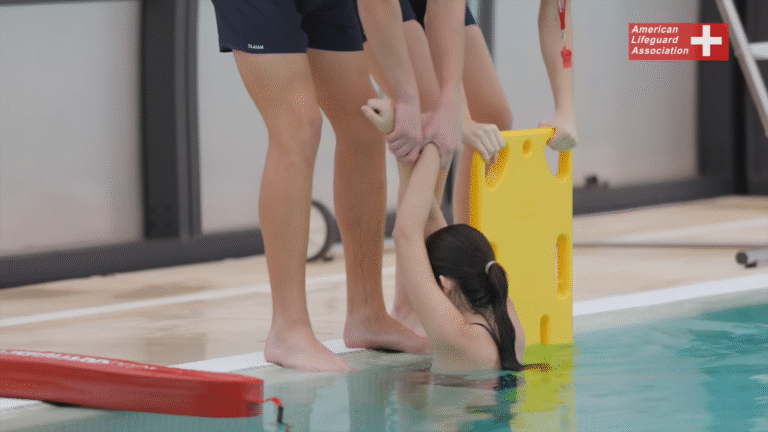
So, you’re part of a technical or R&D team, maybe elbow-deep in food safety protocols or quality assurance processes, and you’re wondering: What’s the next step for me? Maybe you’ve heard whispers about FSSC 22000 lead auditor training, or perhaps you’ve seen it pop up in job descriptions. Either way, you’re curious—and you should be. This isn’t just another certification to tack onto your resume; it’s a game-changer for anyone serious about food safety and career growth. Let’s break it down, piece by piece, and see why this training might just be the spark your career needs.
What’s FSSC 22000, Anyway?
Before we get into the nitty-gritty of lead auditor training, let’s talk about FSSC 22000 itself. The Food Safety System Certification 22000 is a globally recognized standard for food safety management. It’s built on the ISO 22000 framework but goes a step further, incorporating additional requirements tailored to the food industry—like prerequisite programs (PRPs) and sector-specific standards. Think of it like a recipe: ISO 22000 is the base, and FSSC 22000 adds the extra spices to make it robust and industry-specific.
Why does this matter? Because food safety isn’t just about avoiding recalls or bad press—it’s about trust. Consumers want to know their food is safe, and companies want to prove they’re delivering. FSSC 22000 is the gold standard for that proof, used by everyone from small manufacturers to global giants like Nestlé or Kraft. And who ensures this standard is met? That’s where lead auditors come in.
The Role of a Lead Auditor: More Than Just a Checklist
You might be thinking, Auditing sounds like a lot of paperwork and boring inspections. Honestly? It’s so much more. A lead auditor is like a detective, piecing together clues to ensure a company’s food safety system is airtight. You’re not just ticking boxes—you’re evaluating processes, identifying risks, and helping businesses stay compliant with international standards. It’s a role that demands technical know-how, sharp communication skills, and a knack for problem-solving.
Here’s the thing: as a lead auditor, you’re not just enforcing rules. You’re shaping how companies operate, protecting consumers, and—let’s be real—saving businesses from costly mistakes. Ever read about a food recall that could’ve been avoided with better systems? That’s where you step in.
What You’ll Do as a Lead Auditor
- Conduct audits: Visit food production facilities, review their processes, and assess compliance with FSSC 22000.
- Analyze risks: Spot gaps in safety protocols before they become problems.
- Collaborate with teams: Work with quality managers, production staff, and executives to implement improvements.
- Report findings: Write clear, actionable reports that guide companies toward compliance.
- Stay current: Keep up with evolving food safety regulations and industry trends.
Sounds intense, right? It is—but it’s also incredibly rewarding. You’re not just doing a job; you’re making a difference in an industry that touches everyone’s lives.
Why Bother with FSSC 22000 Lead Auditor Training?
Okay, let’s get to the heart of it: why should you care about this training? For starters, it’s a career booster. Whether you’re in R&D, quality assurance, or technical management, becoming a certified FSSC 22000 lead auditor sets you apart. It’s like adding a turbo engine to your professional toolkit. Here’s why:
- High demand: Food safety is non-negotiable, and companies are always looking for skilled auditors to keep them compliant.
- Global recognition: FSSC 22000 is accepted worldwide, so your certification opens doors in multiple countries and industries.
- Career flexibility: You can work in-house, join a certification body, or even go freelance as a consultant.
- Better pay: Auditors with specialized certifications often command higher salaries—some sources estimate 20-30% more than non-certified peers.
- Personal growth: The training hones your analytical, communication, and leadership skills, which are transferable to any role.
You know what’s wild? The food industry is growing faster than ever—global food demand is projected to increase by 50% by 2050. That means more companies, more regulations, and more need for experts like you. Getting certified now puts you ahead of the curve.
What Does the Training Involve?
So, what’s the training actually like? Picture this: a mix of classroom learning (or virtual sessions, depending on the provider), hands-on exercises, and real-world case studies. Most FSSC 22000 lead auditor courses run for about five days, though some offer flexible online formats. You’ll cover everything from the nuts and bolts of the FSSC 22000 standard to the art of conducting effective audits.
Key Components of the Training
- Understanding the standard: Dive deep into FSSC 22000 requirements, including ISO 22000, PRPs, and additional criteria.
- Audit planning: Learn how to design an audit plan that’s thorough but efficient.
- Conducting audits: Practice interviewing staff, observing processes, and collecting evidence.
- Reporting and follow-up: Master the art of writing clear, concise audit reports and recommending corrective actions.
- Exam: Most courses end with a test to earn your certification—don’t worry, it’s tough but fair.
Here’s a little insider tip: the best courses aren’t just about passing the exam. They teach you how to think like an auditor. You’ll learn to spot red flags, ask the right questions, and navigate tricky situations—like when a manager tries to dodge your questions about sanitation protocols. (Trust me, it happens.)
Who Should Take This Training?
You might be wondering, Is this for me? If you’re in a technical or R&D role, the answer is probably yes. This training is ideal for:
- Quality assurance professionals looking to level up.
- R&D team members who want to branch out into compliance.
- Food safety managers aiming for a broader skill set.
- Anyone curious about auditing as a career path.
No prior auditing experience? No problem. Most courses are designed for beginners and seasoned pros alike. All you need is a basic understanding of food safety principles and a willingness to learn.
A Quick Digression: The Human Side of Food Safety
Let’s pause for a second. Food safety isn’t just about standards and audits—it’s about people. Think about the last time you grabbed a snack from the store. You trusted it was safe to eat, right? That trust comes from systems like FSSC 22000 and the auditors who enforce them. As a lead auditor, you’re not just protecting companies; you’re protecting families, kids, and communities. That’s the kind of impact that makes you feel good at the end of the day.
Choosing the Right Training Provider
Not all training programs are created equal, so picking the right one is crucial. Look for providers accredited by organizations like IRCA (International Register of Certificated Auditors) or Exemplar Global. These courses are vetted for quality and recognized globally. Some well-known providers include:
- SGS: A global leader in certification and training.
- Bureau Veritas: Offers both in-person and online courses.
- TÜV SÜD: Known for rigorous, hands-on training.
- Intertek: Great for flexible, virtual learning options.
Pro tip: Check reviews on platforms like LinkedIn or industry forums to see what past participants say. You want a course that’s engaging, practical, and led by instructors who’ve actually been in the field—not just read the textbook.
Questions to Ask Before Signing Up
- Is the course accredited?
- Does it include practical exercises or case studies?
- Are there flexible formats (online, in-person, hybrid)?
- What’s the instructor’s background?
- Does the provider offer post-training support?
You know what’s frustrating? Signing up for a course that feels like a cash grab. Avoid that by doing your homework upfront.
What to Expect After Certification
Once you’ve got that shiny FSSC 22000 lead auditor certification, what’s next? First off, congratulations—you’re now part of an elite group. Here’s what you can expect:
- Job opportunities: Look for roles like food safety auditor, quality manager, or compliance consultant.
- Networking: Connect with other auditors through organizations like the Global Food Safety Initiative (GFSI) or local industry groups.
- Continuous learning: Stay sharp by attending webinars, reading journals like Food Safety Magazine, or joining LinkedIn groups.
- Real-world impact: You’ll see firsthand how your work strengthens food safety systems.
Here’s a quick reality check: auditing isn’t always glamorous. You might spend long days in processing plants or poring over documentation. But when you catch a critical issue—like a mislabeled allergen that could’ve harmed someone—it’s worth it.
Challenges You Might Face (And How to Tackle Them)
Let’s be honest—auditing isn’t all smooth sailing. You’ll face challenges, especially as a newbie. Here are a few common ones and how to handle them:
- Pushback from staff: Some employees see auditors as the “bad guys.” Build rapport by being approachable and explaining your role clearly.
- Complex regulations: Food safety standards evolve constantly. Stay updated with resources like the GFSI website or Codex Alimentarius.
- Time pressure: Audits often have tight deadlines. Practice good time management during training to prepare.
- Imposter syndrome: Feel like you’re not qualified? Trust the process—your certification proves you’ve got the skills.
Ever felt like you’re out of your depth in a new role? That’s normal. The training gives you the tools to grow into the role with confidence.
A Seasonal Tie-In: Food Safety in 2025
Since we’re in July 2025, let’s talk trends. This year, sustainability and transparency are huge in the food industry. Consumers are demanding more info about where their food comes from, and FSSC 22000 audits are a big part of proving that transparency. Plus, with summer in full swing, think about seasonal risks—higher temperatures can mean bigger challenges for food storage and transport. As an auditor, you’ll be on the front lines, ensuring safety no matter the season.
Wrapping It Up: Your Next Step
So, where do you go from here? If you’re intrigued by FSSC 22000 lead auditor training, start by researching accredited providers and checking their schedules. Many offer courses year-round, so you could be certified by fall. Talk to your manager about funding—lots of companies cover training costs for high-value certifications like this.
Here’s the bottom line: becoming an FSSC 22000 lead auditor isn’t just about learning a new skill. It’s about stepping into a role that matters—one that protects people, strengthens businesses, and sets you up for a dynamic career. So, what’s holding you back? The food industry needs sharp minds like yours. Take the leap, and you might just find yourself loving the challenge.






